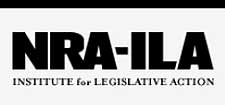Opinion

Much of the attention in recent weeks in the United States Supreme Court was the oral arguments in National Rifle Association of America v. Vullo, No. 22-842, a First Amendment case on whether government officials may use their regulatory authority to effect a “blacklisting campaign” to silence and punish entities like the NRA for their pro-gun advocacy.
Last week, also, the Court issued a decision in Federal Bureau of Investigation v. Fikre, No. 22-1178, arising out of a different alleged abuse of government power, the federal government’s “No Fly List.”
The “No Fly List,” of course, underlies the “No Fly, No Buy” gun control proposal endorsed by then-President Barack Obama, Nancy Pelosi, and others, whereby any person on the “No Fly List” would be prohibited from passing a background check to purchase a firearm.
The NRA has long maintained that terrorists or dangerous people should not have firearms and that “any suggestion otherwise is offensive and wrong.” The real issue, as the NRA pointed out in its opposition to proposed state legislation in 2019, is that “No Fly, No Buy” has:
the potential to impact law-abiding individuals who mistakenly end up on the list for unbeknownst reasons. The terrorist watchlist is not public record; both the list of individuals and the evidence used to determine who is added to the list are secret. Due process is a pillar of the American justice system, and a constitutionally protected right cannot, and should not, be taken away on the basis of a secretive or unsubstantiated accusation. Additionally, the process for being taken off of the list is tenuous and difficult.
Besides a process without clear standards, notice, a hearing or similar judicial oversight (one amicus brief described the “No Fly List” as a “regulatory black box”), those on the list face potentially nightmarish consequences, as a review of the Fikre case serves to show.
In 2010, Yonas Fikre, a U.S. citizen resident in Oregon, was on a business trip to Sudan when he was invited to a lunch at the U.S. embassy. According to Fikre, FBI agents met with him to ask about his ties to a mosque in the Portland area. They advised him he was on the “No Fly List” but could be taken off if he agreed to act as an FBI informant. Fikre refused. Unable to return to the United States, Fikre travelled to the United Arab Emirates, where he was arrested, imprisoned and tortured in 2011, allegedly because the FBI had requested his detention and interrogation. Upon his eventual release, Fikre flew to Sweden, where he unsuccessfully applied for asylum while attempting to modify his “No Fly List” status through the Department of Homeland Security. He claimed that his wife divorced him because of his inability to return to his family and the stigma that attached to him as a person on the list.
In 2013, he sued the federal government over his inclusion on Terrorist Screening Dataset and its constituent “No Fly List,” and the procedures the government used in making that decision. He contended that he was placed on the list for constitutionally impermissible reasons, including his religious beliefs. The Swedish government returned Fikre to the United States by private jet in 2015.
The next year, while the litigation was ongoing, the government removed Fikre from the “No Fly List” and submitted a declaration that he would “not be placed on the No Fly List in the future” based on “currently available information.” (By that time, the list prohibited approximately 81,000 individuals from flying into, out of, within, or over the United States.) The government defendants then sought to have the lawsuit dismissed.
The declaration did not disclose why Fikre ended up on the list and did not guarantee that he would not be placed back on it for substantially the same reasons; it also did not renounce the original decision to have him listed. As one of Fikre’s court filings states, Fikre “may have been placed on the list for any number of other unknown reasons. Perhaps he attended the wrong lectures, purchased the wrong books, or browsed the wrong websites. He has no way of knowing because the government has not told him,” and he could “unwittingly repeat the same type of actions deemed suspicious and end up back on the list for the same reasons.”
The question before the Supreme Court was whether the government’s declaration was enough to foreclose further proceedings as futile or “moot.”
In a unanimous decision, the Court held the case could proceed. A defendant’s voluntary cessation of a challenged practice would moot a case only if the defendant could show that the practice could not “reasonably be expected to recur,” and the government failed to overcome this “formidable burden.” “While the government’s representation that it will not relist Mr. Fikre may mean that his past conduct is not enough to warrant relisting, that does not speak to whether the government might relist him if he engages in the same or similar conduct in the future.” The government’s declaration failed to state whether Fikre faced being re-listed “if he does the same or similar things in the future — say, attend a particular mosque or refuse renewed overtures to serve as an informant.”
It is possible that the government had excellent national security reasons to place Fikre on the list; alternatively, Fikre may have been the victim of faulty intelligence or was listed simply as part of being leaned on to become an informant. Notably, though, the Court stated that, “given what little we know at this stage in the proceedings, Mr. Fikre may have done none of the things the government presumes he has.”
The ruling is a preliminary or provisional decision, as the lawfulness of the government’s actions (the “as-yet uncontested allegations”) was not before the Court. What the ruling establishes is that the government has to meet the same standards as private defendants when seeking a dismissal for mootness, despite its argument that allowing “No Fly List” claims “to proceed to discovery would needlessly enmesh the parties and courts in disputes about the use of [highly sensitive] information…” For Mr. Fikre, however, being taken off the “No Fly List” still means even more litigation lies ahead, in a case that already consumed over a decade of his life.
The Court’s decision sheds a fresh light on why it is wrong to allow the Executive branch to unilaterally rescind citizens’ constitutional rights, including Second Amendment rights, based on no more than “reasonable suspicion” and without due process safeguards.
About NRA-ILA:
Established in 1975, the Institute for Legislative Action (ILA) is the “lobbying” arm of the National Rifle Association of America. ILA is responsible for preserving the right of all law-abiding individuals in the legislative, political, and legal arenas, to purchase, possess, and use firearms for legitimate purposes as guaranteed by the Second Amendment to the U.S. Constitution. Visit: www.nra.org







